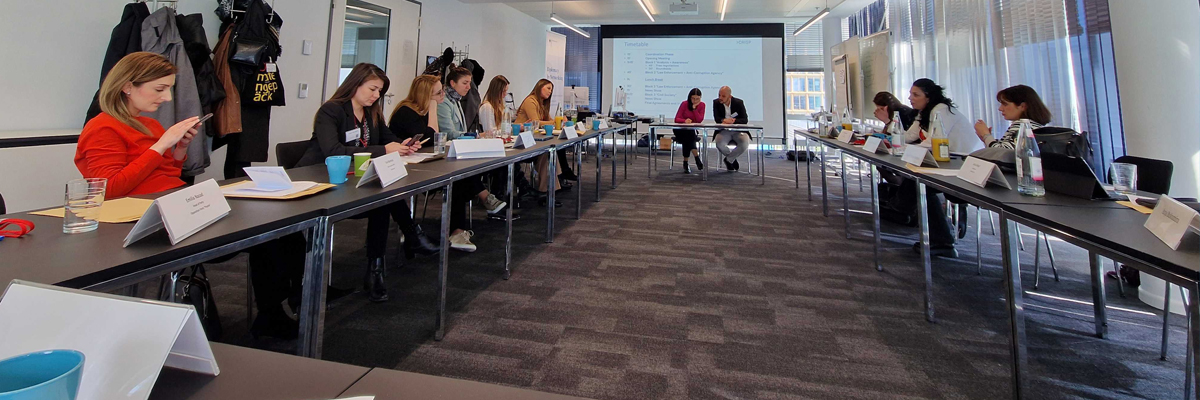The German Federal Foreign Office invited CRISP to take over one day training for young diplomats from countries undergoing the EU rapprochement process. We implemented the simulation game "Bribania" centered on developing an anti-corruption strategy for a fictional country aspiring to join the European Union. Participants took on different roles and pursued their goals, at the same time trying to find an agreement with other parties or organizations. The simulation game also addressed the challenge of EU rapprochement and let participants experience the challenges of developing strategies first-hand.
However, the benefits of the simulation game didn't end there. The process was designed for gaining practical experience in negotiations and working with conflicts, as well as it provided participants with a safe space for testing different approaches and strategies to solving core issues of the game. Thus, we encouraged participants to think creatively and find innovative solutions to complex problems while fostering open communication, which is crucial for effective collaboration. "Bribania" emphasized the importance of collaboration and engaging diverse stakeholders in developing effective strategies.
In the end, we went through a guided reflection process to discuss and analyze the experiences participants gained in the game, including their successes and challenges.
Project Goals
The straining aims to provide practical experience and skills to young diplomats from EU candidate countries, focusing on negotiations, conflict resolution, and developing strategies for implementing necessary reforms for EU accession. The game creates a safe and engaging environment for participants to test different approaches and foster innovative solutions to complex problems. Through the game, participants are encouraged to develop effective collaboration skills and engage diverse stakeholders in developing strategies. A guided reflection process at the end helps to analyze the experiences and discuss successes and challenges. The broader goals of the program are to promote EU integration and enhance the understanding of necessary reforms among candidate countries.
Target Group(s)
The target group are young diplomats from EU candidate countries, including Albania, Georgia, Kosovo, Moldova, Northern Macedonia, Montenegro, Serbia, Turkey, and Ukraine.
Planned Outcomes/Achievements
- Participants sharpened their practical experience and skills in negotiations, conflict resolution, and developing strategies for implementing necessary reforms for EU accession.
- The simulation game provided a safe and engaging environment for testing different approaches and fostering innovative solutions to complex problems.
- The game encouraged participants to develop effective collaboration skills and engage diverse stakeholders in developing strategies.
- The program aimed to promote EU integration and enhance the understanding of necessary reforms among candidate countries, contributing to EU rapprochement and integration efforts



